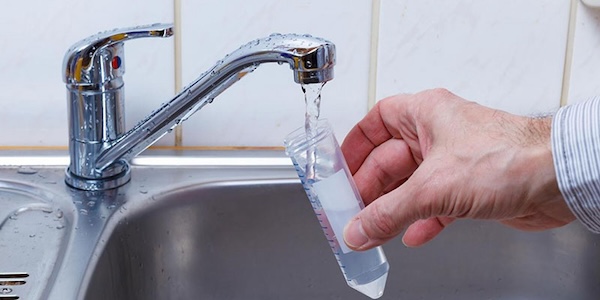For professional tradesmen, managing labor costs is a balancing act. Cutting expenses too aggressively can compromise productivity and safety, while failing to optimize labor strategies can eat into profitability. The key is to implement smart, strategic measures that enhance efficiency without putting workers at risk. Optimize Work Schedules For Maximum Efficiency One of the most Read more
Whats New

For professional tradesmen, managing labor costs is a balancing act. Cutting expenses too aggressively can compromise productivity and safety, while failing to optimize labor strategies can eat into profitability. The key is to implement smart, strategic measures that enhance efficiency without putting workers at risk.
Optimize Work Schedules For Maximum Efficiency
One of the most effective ways to reduce labor costs is by structuring work schedules to minimize downtime and maximize output. Poorly planned schedules often lead to unnecessary overtime, idle time, and workforce inefficiencies. To prevent this, tradesmen should:
- Analyze Workflow Patterns – Assessing job site productivity can reveal gaps where time is wasted. Identifying these inefficiencies allows for schedule adjustments that eliminate bottlenecks.
- Use Staggered Shifts – Instead of overloading workers during peak hours, staggered shifts can distribute labor more evenly throughout the day, reducing overtime costs.
- Leverage Skilled Labor Efficiently – Assigning the right workers to the right tasks prevents highly skilled professionals from performing lower-value tasks that could be delegated.
By streamlining work schedules, businesses can improve labor utilization, keeping costs in check without overburdening workers.

Implement Job Site Organization To Improve Productivity
A well-organized job site is critical for reducing wasted time and increasing efficiency. When workers spend less time searching for tools, materials, or information, they can focus on completing tasks more quickly and safely. Consider these strategies for better site management:
- Standardized Material Storage – Keeping tools and materials in designated areas prevents workers from wasting time locating necessary items.
- Clear Work Zones – Establishing specific zones for different tasks helps reduce confusion, streamlining movement and improving efficiency.
- Pre-Shift Planning Meetings – Holding a short daily meeting helps keep everyone up to date on their assignments while also preventing delays and miscommunications.
An organized work environment allows crews to stay on task, reducing unnecessary labor hours while maintaining safety and productivity.
Leverage Technology To Streamline Workflows
Technology is revolutionizing the trades, offering opportunities to cut labor costs while enhancing safety. Digital tools and automated systems can simplify tasks, reduce human error, and improve job site coordination. Some effective ways to leverage technology include:
- Project Management Software – Advanced platforms can help supervisors track progress, allocate resources effectively, and reduce scheduling conflicts.
- Wearable Safety Tech – Smart helmets, vests, and other wearables can detect fatigue or unsafe conditions, preventing accidents that lead to lost work hours.
- Automated Equipment and Robotics – In some cases, automation can reduce reliance on manual labor, completing repetitive tasks more efficiently and with greater precision.
By integrating technology, tradesmen can reduce time-consuming manual processes while maintaining a safe and structured job site.
Use Scaffolding and Modular Components To Reduce Labor Needs
Construction projects often require extensive labor for assembling and disassembling temporary structures. Using scaffolding components designed for quick assembly can cut labor costs significantly. Pre-engineered scaffolding solutions reduce setup time, allowing workers to focus on core tasks while maintaining site safety. Modular components also allow for faster adjustments and repositioning, reducing the amount of labor needed for modifications.
Monitor Performance And Continuously Improve Processes
To keep labor costs down while maintaining safety, businesses must consistently evaluate and refine their processes. Regular performance reviews and feedback loops help identify areas where improvements can be made.
- Track Labor Productivity Metrics – Use data to analyze how long tasks take and where inefficiencies exist.
- Encourage Worker Feedback – Employees on the ground often have the best insights into workflow improvements.
- Adapt To New Industry Practices – Staying informed about new labor-saving techniques and technologies allows businesses to remain competitive.
By continuously optimizing operations, tradesmen can maintain high standards of safety and productivity without incurring unnecessary labor costs.
Saving on labor costs doesn’t mean sacrificing safety or job quality. With the right approach and latest tech, we can come together to create an efficient and secure work environment.
AUTHOR BIO: Julio Black is the Head of Product Marketing at AT-PAC. He has 15 years of industrial and commercial scaffolding experience, along with technical expertise, a strategic mindset, and leadership skills. Black is committed to driving business results, fostering innovation, and creating exceptional customer experiences.

Water is one of our most valuable resources. Therefore, managing it efficiently has never been more important. Fortunately, smart plumbing systems are revolutionizing how we monitor, conserve, and optimize water usage. At the heart of these innovations lies PCB (Printed Circuit Board) technology, enabling real-time monitoring, automated controls, and seamless connectivity. Below, we discuss how Read more
Water is one of our most valuable resources. Therefore, managing it efficiently has never been more important. Fortunately, smart plumbing systems are revolutionizing how we monitor, conserve, and optimize water usage.
At the heart of these innovations lies PCB (Printed Circuit Board) technology, enabling real-time monitoring, automated controls, and seamless connectivity. Below, we discuss how PCBs transform how homes, businesses, and cities manage water.

PCB Technology in Water Systems: Understanding the Role & Benefits
A printed circuit board (PCB) is the backbone of modern electronic systems, providing a structured platform for electrical components to communicate and function efficiently. It consists of a non-conductive substrate, typically fiberglass, layered with conductive pathways made of copper.
These pathways allow electrical signals to travel between components, enabling precise control and automation. There are several types of PCBs; each PCB suits specific applications. For instance, OurPCB manufactures a variety of PCBs, including rigid, flexible, aluminum, and metal-core PCBs.
PCBs in smart plumbing integrate several key components to enable intelligent water management. For instance, microcontrollers and processors act as the system’s brain, interpreting sensor data and executing commands. Sensors, such as flow meters and pressure detectors, continuously monitor water movement and detect anomalies like leaks or irregular usage.
Further, wireless communication modules (Wi-Fi, Bluetooth, or LoRa) allow remote access and integration with smart home or industrial automation systems. Relay switches and actuators enable physical control over water valves and pumps, automating adjustments based on real-time conditions. So, what are the benefits of these systems in smart plumbing?
Water Conservation
One of the most effective ways PCBs contribute to water conservation is through leak detection and prevention. Thus, smart plumbing systems equipped with IoT-integrated sensors identify minor leaks before they escalate into major issues.
Instead of relying on manual inspections, which can be infrequent and unreliable, these systems provide instant alerts to homeowners or facility managers. In some cases, automated shut-off valves controlled by PCB-driven actuators can stop the water supply when it detects a leak, preventing unnecessary loss.
PCBs also optimize water conservation in flow control and irrigation systems. Adaptive pressure regulation ensures that pipes distribute water efficiently, preventing excessive force that leads to overuse or system damage.
Cost Savings
Early leak detection helps homeowners and businesses avoid costly repairs and property damage. Automated shut-off valves prevent flooding, eliminating expenses from structural repairs and mold remediation.
Additionally, optimized flow control ensures appliances and fixtures use water efficiently, lowering utility bills. By reducing manual maintenance and emergency repairs, PCB-integrated systems also lower labor costs. Over time, the investment in smart plumbing technology pays for itself through sustained cost reductions.
Energy Efficiency
Smart plumbing systems enhance energy efficiency by regulating water flow and temperature. As such, PCBs control water heaters and pumps, ensuring they only operate when necessary, preventing standby energy loss.
In large-scale applications, such as commercial buildings and industrial facilities, this level of control significantly reduces energy consumption. By integrating with renewable energy sources and smart grids, these systems further improve sustainability while lowering operational costs.
Automated Maintenance
Continuously monitoring system performance enables predictive maintenance, reducing the likelihood of sudden failures. Sensors track pipe conditions, water pressure, and component wear, ensuring timely interventions before breakdowns occur.
This automation minimizes the need for manual inspections and emergency repairs, extending the lifespan of plumbing infrastructure. Automated maintenance reduces downtime in industrial and municipal settings and ensures a steady water supply without disruptions.
Improved Water Quality
Water quality monitoring is another critical function of PCB-based plumbing systems. Embedded sensors detect contaminants, pH levels, and chemical imbalances, providing real-time data to ensure safe and clean water. Smart filtration systems automatically adjust purification processes when they detect abnormalities, maintaining consistent quality.
These systems are particularly valuable in regions with fluctuating water conditions or high pollution, safeguarding residential and commercial users from health risks.
Remote Monitoring and Control
IoT-enabled PCBs allow users to monitor and control plumbing systems remotely, providing convenience and security. Through cloud-based platforms, facility managers and homeowners can receive real-time alerts, adjust settings, and diagnose issues from anywhere. This connectivity helps large properties, rental units, and businesses, ensuring quick responses to leaks, pressure fluctuations, or water quality concerns. Further, remote access reduces the need for on-site interventions, streamlining system management.
Extended Plumbing System Lifespan
Sudden pressure fluctuations and excessive force can weaken plumbing components over time, leading to leaks, cracks, and premature failures. Therefore, smart flow control, managed by PCB-based regulators, ensures a steady, balanced water distribution, reducing wear and tear on the system.
Automated monitoring also plays a crucial role in longevity. By addressing minor issues before they escalate, smart plumbing minimizes damage and extends the durability of the entire infrastructure. Extended system lifespan translates to significant operational savings and reduced downtime for commercial and industrial applications.
Smart Integration
These systems communicate with HVAC controls, security systems, and energy management platforms, allowing for automated responses based on real-time data. For example, a smart home system can reduce water heater energy consumption when no occupants are detected or shut off water flow if a security system senses a leak.
This level of integration enhances efficiency and convenience. For instance, plumbing systems can adjust water pressure and flow based on occupancy, ensuring optimal resource use in commercial buildings. On top of that, industrial facilities can synchronize water usage with production schedules, reducing waste and improving operational efficiency.
Disaster Prevention
These systems provide real-time alerts to homeowners, facility managers, or maintenance teams, allowing for immediate action. For instance, rapid response is essential in high-risk environments such as hospitals, data centers, and manufacturing plants, where water damage can cause severe financial and operational losses.
Integration with security and building management systems mitigates potential disasters before they result in structural damage, mold growth, or costly repairs. This proactive approach enhances safety, reduces insurance claims, and preserves valuable infrastructure.
Conclusion
PCB technology transforms smart plumbing and water management systems. These advancements, from leak detection and water quality monitoring to flow optimization and remote access, enhance efficiency, reduce waste, and improve system reliability.
Further, integrating PCBs ensures cost savings, energy efficiency, and extended plumbing lifespan, making water systems smarter and more sustainable. As these technologies evolve, PCB-driven solutions will play an even greater role in optimizing water usage, preventing disasters, and shaping the future of intelligent plumbing infrastructure.

Want.Net, a leading provider of on-demand custom machining services, is making waves in the manufacturing industry with its high-precision CNC machining, injection molding, sheet metal fabrication, and 3D printing capabilities. With a commitment to premium quality, quick delivery, and cost-effective pricing, Want.Net offers comprehensive manufacturing solutions to businesses around the world. As global demand for Read more
Want.Net, a leading provider of on-demand custom machining services, is making waves in the manufacturing industry with its high-precision CNC machining, injection molding, sheet metal fabrication, and 3D printing capabilities. With a commitment to premium quality, quick delivery, and cost-effective pricing, Want.Net offers comprehensive manufacturing solutions to businesses around the world.
As global demand for custom parts continues to rise, Want.Net stands out as a reliable and flexible partner, providing customers with precision-engineered solutions designed to meet the diverse needs of modern industries. The company’s unique business model—on-demand manufacturing—offers businesses the ability to produce parts only when needed, ensuring faster turnaround times and reduced inventory costs.
Comprehensive Capabilities in Custom Manufacturing
Want.Net’s service offerings include:
- CNC Machining Services: Precision CNC turning, milling, and drilling processes ensure that every part meets the highest industry standards. Customers can rely on Want.Net for the most complex and accurate machining projects.
- Injection Molding: Want.Net provides custom injection molding services with no minimum order quantity and the capability to meet tight tolerances. This allows for both low-volume and high-volume production with quick turnaround times.
- Sheet Metal Fabrication: From laser cutting to bending and welding, Want.Net offers comprehensive sheet metal fabrication services to help customers quickly turn designs into functional components.
- 3D Printing: Want.Net’s rapid prototyping and final product 3D printing services help businesses reduce time to market and cost, enabling them to test designs and make adjustments quickly.
Commitment to Quality and Customer Satisfaction
In addition to its extensive service offerings, Want.Net places a strong emphasis on quality control. The company performs at least three rigorous quality inspections before shipment to ensure that all parts meet the precise standards required by its global clients.
Innovative Payment Option: Pay After Delivery
Want.Net is also proud to be the first company in the on-demand manufacturing sector to offer a “Pay After Delivery” (PAD) service. This flexible payment option allows businesses to defer payment until after delivery, making it easier for companies to manage cash flow and budget for future orders.
Building a Robust Global Network
Headquartered in Shenzhen, China, Want.Net has built a comprehensive network of top-tier manufacturers and suppliers across China and globally. This network allows Want.Net to offer competitive pricing and unmatched reliability while ensuring that every part is produced to the highest quality standards.
Tailored Solutions for Businesses Worldwide
Whether you are a startup or an established company, Want.Net offers tailored solutions that meet the unique needs of each customer. The company’s ability to offer flexible, high-quality manufacturing services makes it the ideal partner for businesses looking to scale their operations while maintaining quality control.
About Want.Net
Want.Net is an innovative online custom machining service provider based in Shenzhen, China. With a focus on precision engineering, Want.Net offers CNC machining, injection molding, sheet metal fabrication, and 3D printing services to businesses worldwide. The company’s commitment to high-quality production, fast turnaround times, and practical pricing has made it a trusted partner for industries ranging from aerospace to automotive, medical devices, and consumer products.
For more information about Want.Net’s on-demand machining services or to get a quote, visit www.want.net.

Installing mechanical systems requires precision and attention to detail. Even small errors can lead to inefficiencies, safety hazards, or costly repairs down the line. Whether working on HVAC systems, plumbing networks, or industrial equipment, technicians must follow best practices to ensure reliable performance. Many of the most common mistakes stem from improper tightening, incorrect alignment Read more
Installing mechanical systems requires precision and attention to detail. Even small errors can lead to inefficiencies, safety hazards, or costly repairs down the line. Whether working on HVAC systems, plumbing networks, or industrial equipment, technicians must follow best practices to ensure reliable performance.
Many of the most common mistakes stem from improper tightening, incorrect alignment, or the use of unsuitable tools for the job. In this article, we will look at some common installation mistakes and how you can prevent them.
Ensuring Proper Torque for Secure Connections
One of the most frequent installation errors involves the incorrect tightening of fasteners and fittings. Overtightening can damage components, while under-tightening may lead to leaks, weak joints, or structural instability. This is particularly critical in systems where pressure fluctuations or vibrations are common. A key factor in avoiding these issues is the use of the right tools for applying precise torque levels.
For example, when securing pipe connections, valve assemblies, or mechanical joints, using a torque wrench ensures that the correct force is applied. However, there are different types of torque wrenches available. You can select the best torque wrench by considering factors like drive size, torque range, accuracy, display size, memory function, etc. It is important to always consider the requirements of your project before selecting a torque wrench that is suitable for the job.
As stated by eTork, it is also important to store your wrench efficiently. Keep it clean, dry, and stored in a protective case to ensure durability. A high-quality torque wrench can allow you to achieve consistent results, reducing the likelihood of leaks or equipment failures. Without an accurate tool, you might have to rely on guesswork, which often leads to inconsistent tightening and long-term performance issues.
Addressing Alignment and Leveling Issues
Improper alignment can cause excessive wear, reduce efficiency, and lead to premature failure. This is especially true in rotating machinery, where even a slight misalignment can result in vibrations that damage bearings and seals.
To get a better understanding of this, let’s consider a case study published in the Nature Journal. The case study is about the load-bearing performance of the shield segment of a tunnel boring machine. There were two misalignments: one that elongated the horizontal axis and the other between the adjacent rings of the shield.
It was found that the misaligned defects caused a significant impact on the tensile stress. This led to an increased risk of cracking and fracture of the segments.
To prevent this, technicians should carefully measure and adjust components before final installation. Using precision instruments to verify alignment ensures smooth operation and minimizes stress on connected parts.
Choosing the Right Materials and Fasteners
Selecting the wrong materials or fasteners for a mechanical system can compromise its durability. For example, using a low-grade bolt in a high-pressure system may result in early failure. Similarly, mismatched materials can lead to corrosion, reducing the lifespan of the installation.
One simple example can be seen in Rui Costa’s chainring failure. As reported by Cyclingnews, his bicycle’s chainring failed at the Tour de Romandie. The reason for the failure was narrowed down to choosing the wrong chainring bolts rather than a complete equipment failure. It was found that shorter bolts were used, which were incapable of supporting the large chainring. This shows how simple mistakes in choosing the right bolts or fasteners can cause equipment to fail.
Technicians should always follow manufacturer specifications and consider environmental factors when choosing components. Systems that use properly graded materials are likely to be secure and functional for many years to come.
Verifying System Performance Before Finalizing Installation
Once a system is installed, thorough testing is essential. Skipping pressure tests, load checks, or calibration steps can lead to undetected issues that become costly problems later. A comprehensive review of the installation, including inspections and test runs, helps identify any weaknesses before the system is put into full operation. Addressing potential concerns at this stage prevents unnecessary repairs and ensures long-term efficiency.
There are different testing methods available for mechanical systems. You should conduct hardness, tensile, impact, fracture toughness, fatigue, and other types of testing. A comprehensive testing approach can ensure that the mechanical systems don’t fail prematurely.
Frequently Asked Questions
How can improper insulation affect mechanical system performance?
Reduced system efficiency, condensation accumulation, and energy loss can result from inadequate insulation. In HVAC and plumbing systems, improper insulation may cause pipes to freeze in cold conditions or lose heat in hot water applications. Making sure the insulation is the proper kind and thickness contributes to damage prevention and efficient maintenance.
Why is vibration control important in mechanical installations?
Bearings, seals, and fasteners are among the parts that might prematurely wear out and fail due to excessive vibration. It can also create noise issues in HVAC and industrial systems. Using vibration dampers, flexible couplings, and secure mounting techniques helps minimize these risks.
What role does thermal expansion play in mechanical system installation?
As they heat and cool, pipes, ducts, and other mechanical parts are impacted by thermal expansion. Failing to account for expansion can cause stress on joints, leading to cracks or leaks. Expansion joints and flexible supports help accommodate these changes and prevent long-term damage.
Professionals may steer clear of the most frequent installation errors in mechanical systems by concentrating on these crucial areas. Proper tool selection, precise alignment, and careful material choices all contribute to a safer and more reliable system. When technicians take the time to follow best practices, they reduce risks and create installations that perform as expected for years to come.

Ever wondered why wastewater treatment is such a big deal in plumbing? The unseen force behind it all – Biochemical Oxygen Demand – determines whether your plumbing system is keeping water safe or turning it into an environmental hazard. BOD isn’t just a technical metric; it’s a critical indicator of how organic waste interacts with Read more
Ever wondered why wastewater treatment is such a big deal in plumbing? The unseen force behind it all – Biochemical Oxygen Demand – determines whether your plumbing system is keeping water safe or turning it into an environmental hazard.
BOD isn’t just a technical metric; it’s a critical indicator of how organic waste interacts with plumbing infrastructure. High BOD levels can spell disaster, clogging pipes, overloading treatment systems, and even affecting water quality in your area.
So what do you need to know? Read on to find out.
Why BOD Matters in Plumbing Systems
For plumbing professionals, the significance of BOD goes beyond basic wastewater treatment. When organic matter builds up in drainage systems, grease traps, and pipes, it can accelerate corrosion, contribute to biofilm formation, and increase maintenance demands.
Industrial and commercial facilities, particularly those in food processing, brewing, and pharmaceutical production, generate high-BOD wastewater that requires specialized treatment to prevent damage to infrastructure.
Without proper treatment, excessive BOD levels can also strain municipal wastewater plants. Plumbing systems that connect to public treatment facilities must comply with discharge limits to avoid fines and potential system overloads.
If these levels aren’t managed effectively, local treatment plants may struggle to break down waste efficiently, leading to untreated or partially treated water making its way into the environment.

How Plumbing Systems Handle BOD
Companies have to use mechanical, biological, and chemical treatments to address BOD in plumbing systems. The approach depends on the level of contamination and the specific needs of the facility.
Industrial facilities often use screens, sedimentation tanks, and grease traps to remove BOD from wastewater. This reduces the organic load and minimizes the strain on downstream treatment processes.
Since BOD measures the oxygen demand of microorganisms, increasing oxygen levels in wastewater helps break down organic matter more efficiently. Aeration systems, commonly used in treatment plants, inject air into wastewater to promote aerobic microbial activity.
Many facilities integrate:
- Biofilters
- Activated sludge processes
- Trickling filters
- Sequencing batch reactors
To boost the microbial breakdown of organic material. These systems rely on naturally occurring bacteria to digest contaminants, reducing BOD levels before wastewater is discharged.
In some cases, chemical additives like hydrogen peroxide or ozone are used to oxidize organic matter and lower BOD levels. While effective, chemical treatments must be carefully managed to avoid negative impacts on plumbing infrastructure and the environment.
For industries dealing with particularly high BOD wastewater, specialized treatment systems can significantly improve efficiency. Techniques such as membrane bioreactors and moving bed biofilm reactors help with biological treatment, removing BOD from wastewater while reducing maintenance demands.
The Role of Plumbing Professionals in BOD Management
Experts can help you make sure that wastewater systems are designed and maintained to handle BOD effectively. This starts with proper system design, using:
- Grease trap
- Sedimentation tanks
- Flow control devices
- pH adjustment tanks
- Aeration systems
To prevent organic overload. Regular maintenance, including pipe inspections and biofilm management, also helps keep plumbing infrastructure operating smoothly.
For businesses generating high-BOD wastewater, working with wastewater treatment specialists with smart plumbing technology ensures compliance with regulations and protects plumbing systems from premature failure. Investing in the right treatment technology not only improves efficiency but also prevents unexpected costs because of things like blockages or corrosion.
BOD: Now You Know
BOD is more than just a wastewater treatment concern – it directly impacts the performance and longevity of plumbing systems.
Understanding and addressing BOD is a critical part of maintaining effective plumbing operations, and for those in the industry, staying ahead of treatment technologies ensures long-term system performance.
